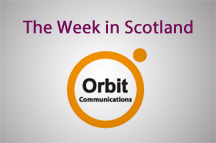 Like most pollsters, pundits and political types that have been talking on TV all night and into the early hours I should start this piece by admitting it is entirely likely that what I am about to say is entirely wrong! I certainly was with my predictions about this election.
Like most pollsters, pundits and political types that have been talking on TV all night and into the early hours I should start this piece by admitting it is entirely likely that what I am about to say is entirely wrong! I certainly was with my predictions about this election.
I will leave others to talk about the implications of the UK-wide results beyond saying Theresa May will surely go down in history as having committed the biggest act of political suicide in history – or at least since the one her predecessor made a little over a year ago.
For those of us working in public affairs in Scotland who were looking forward to a period without elections after a total of six votes in three years, with more opportunity to focus on policy issues which matter most to our clients, this seems a forlorn hope. It is almost impossible to imagine any party governing for anything close to the full five years of a Parliament so a further General Election is surely on the cards – the only question is when!
In Scotland, the story of the night will clearly be the fall of the SNP vote and their loss of seats, in particular the loss of high profile figures from their traditional base in rural areas of Scotland such as Angus Robertson, their former leader at Westminster and Alex Salmond, former First Minister. Those wins for the Conservatives, along with wins in areas such as Stirling and Aberdeenshire signal a clear return for the party to areas of Scotland which were former strongholds in the 1990s and before. The role of the Scottish MPs could in fact be critical in a UK context and it would be a supreme irony if those MPs make the difference which keep the party in control of Downing Street. Either way, the result for the party is certainly not something that anyone would have predicted a few years ago and will put an end to the jokes about numbers of Tory MPs and Pandas.
The other story of the night is the extent to which Labour has also drastically over-performed expectations. Whilst the party was expecting to hold Ian Murray’s seat in Edinburgh South, as well as perhaps winning in East Lothian, they achieved that and a lot more besides, returning MPs from their own traditional heartlands, including winning seats back in Glasgow. This certainly gives the party a platform and credibility to continue to rebuild. The difficulty for the Scottish party now will be the extent to which their success may or may not have been down to Jeremy Corbyn, who was opposed by Kezia Dugdale. It is likely that hatchets will be buried in that regard in the short term at least, but it does present a future problem for the party.
For the SNP, it must feel like a disappointing and frustrating night full of contradictions. They have achieved their second best ever result in a Westminster election and have some right to claim they have “won” the General Election in Scotland. They also could not ever have been expected to repeat their exceptional result from two years ago when they won 56 out of the 59 seats but the scale of their losses will surely have surprised most in the party.
Although Nicola Sturgeon’s position is under no immediate threat, with so many experienced defeated former MPs, particularly from rural areas, able to snipe from the sidelines should they choose, the First Minister could face a rocky period. Alex Salmond indicated in his concession speech that he isn’t planning on staying quiet in the future. The First Minister will need to consider a rethink to her long-term strategy to balance the desire of many in her base support for a quick second independence referendum, whilst trying to win back SNP voters which have been lost in this election precisely because they do not want such a vote anytime soon.
It appears that any thoughts of such a referendum will be off the table at least in the short to medium term but the First Minister will face a struggle to hold together the very broad SNP coalition – will she be forced to decide if the party is an urban one or a rural one?
The other question for the SNP is what role they will now try to carve out for themselves at Westminster? They have offered to support a Labour Government but surely the price you would expect them to demand a second independence referendum, is perhaps a gift they don’t actually want at the moment as if this election result has taught us anything it is that voters take a dim view of unnecessary elections and tend to react accordingly, as one Mrs T. May seems to have discovered.
So, there will certainly be plenty to talk about at the next PubAffairs event next week which Orbit are delighted to sponsor. It will take place from 6pm on Wednesday 14 June at Hemma in Holyrood Road so I hope you will come along. Between us we might even be able to make some sense of what has happened and have a guess at what might happen next!












